Through its 1995 Constitution, Ethiopia created a devolutionary federal state structure that is devised as a means of holding together the polity. The new political system combines federalism, self determination (up to and including secession) and legal pluralism as solutions to the erstwhile unequal relationships among ethno-national groups in the country. While it has devised these solutions to tackle problems, the new
political arrangement displays many loose ends as regards the protection of human rights, be that of individuals or minorities. This article attempts to highlight some of the outstanding human rights problems the new political arrangement fails to deal with.
